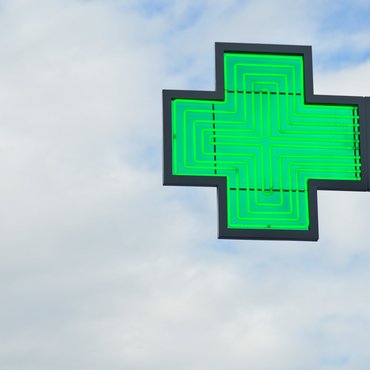Is medical cannabis legal in Germany?
Since 2017, medical cannabis has been legalized in such a way that doctors can prescribe it under strict conditions, especially to treat patients who are seriously ill or considered to be out of treatment.
There are three types of cannabis products: prescription medical marijuana or medical cannabis extracts, cannabis-based finished medicinal products (Fertigarzneimittel) and products containing cannabidiol (CBD).
Medical marijuana and cannabis extracts (hereinafter "Medical Cannabis").
The medical cannabis available in Germany on a medical prescription is usually dried cannabis flowers or preparations derived from cannabis flowers.
If such preparations from cannabis flowers are produced in the essential manufacturing steps in the pharmacy, they are not subject to authorization according to Section 21 (2) Nr. 1 of the Arzneimittelgesetz (German Medicines Act; herinafter AMG). In practice, such products are extracts obtained from the cannabis flower or infusions obtained from the flowers and leaves.
Cannabis-based finished medicinal products (Fertigarzneimittel)
Cannabis-based finished medicinal products have been marketable as prescription drugs in Germany since 2011.
Finished medicinal products within the meaning of Section 4 (1) sentence 1 AMG are medicinal products that have already gone through all manufacturing steps before they are supplied to pharmacies. They require a marketing authorization, Section 21 (1) AMG, before they can be placed on the market.
The first cannabis-based finished drug approved in Germany was a THC-containing oral spray marketed under the trade name Sativex®.
Products containing CBD
In addition to medical cannabis in the narrower sense, there are several products containing CBD on the German market. These products, as long as they are synthetic CBD-based, are not subject to the Betäubungsmittelgesetz (German Narcotics Act; hereinafter BtMG) and can be sold without restrictions in Germany.
In contrast, there is no case law on the marketability of products based on naturally derived CBD. The Bundesamt für Arzneimittel (Federal Office for Drugs and Medical Devices; hereinafter BfArM) does not rule out the applicability of the BtMG to such products. Against this background, there is no reliable legal distribution of such products in Germany.
What is the legal framework?
Under German law, cannabis is both a narcotic and, under strict requirements, a medical product. Due to this dual characteristic, the BtMG previously applied to both marketable/legal (medical) cannabis and non-marketable/illegal cannabis (narcotics).
Since 1 April 2024, the Medizinal-Cannabisgesetz (MedCanG) has provided the legal framework for medical cannabis.
What are the requirements for growing and manufacturing medical cannabis?
With the “legalization” of medical cannabis, the Cannabis Agency (Cannabisagentur) was founded by the BfArM. This agency is responsible for the controlled cultivation, harvesting, processing, quality testing, storage, packaging and dispensing to pharmacies of medicinal cannabis flowers in Germany.
Cultivation, harvesting, and storage of the cannabis has been carried out by companies selected in an Europe-wide public procurement procedure. Since April 1, 2024, the granting of cultivation permits no longer requires such a procedure.
In Germany, the initial selection of cultivation companies was made in accordance with Section 19 (2a) BtMG in an Europe-wide public procurement procedure, which ended in April and May 2019 with the award of the contract to three companies. The awarded companies are the Canadian companies Aphria and Aurora and the German cannabis producer Demecan GmbH.
To ensure the quality of the cultivated medicinal cannabis, there are specifications according to the "Good Agricultural and Collection Practice (GACP)", „Good Manufacturing Practice (GMP)" and the "Monografie `Cannabisblüten´ (Cannabis Flower Monograph)".
The selected companies are allowed to grow, harvest and process a combined 2,600kg annually over a four-year period. The total annual quantity is distributed among the producers as follows:
- Aphria (1,000 kg p.a.)
- Aurora (1,000 kg p.a.)
- Demecan GmbH (600 kg p.a.).
The first harvest took place in 2021, one year later than planned. In addition, only 50 kg could be harvested.
The demand for medical cannabis cannot be met solely through German cultivation. The excess demand is covered by imports, mainly from the Netherlands and Canada. Around 21,000 kilograms of medical cannabis were imported from abroad to Germany in 2021.
Are there any import restrictions for medical cannabis?
Medical cannabis is imported to Germany by the Federal Opium Agency (Bundesopiumstelle), which is affiliated with the BfArM. If a company intends to import cannabis for medical purposes, it is necessary to obtain the following permits:
Permission to place cannabis on the market (Section 4 MedCanG):
According to Section 4 MedCanG, a permit is required to place cannabis on the market, which includes import and export. For this purpose, the interested company must submit a permit application to the Federal Opium Agency at the following address:
Bundesinstitut für Arzneimittel und Medizinprodukte, Bundesopiumstelle,
Kurt-Georg-Kiesinger-Allee 3,
53175 Bonn.
The permit application must be submitted in duplicate and contain the following information.
-
- the full name or company name of the applicant,
- an address,
- proof of the required expertise,
- the most accurate possible description of the operating site,
- securing the production sites,
- the intended import quantity and
- the production process.
The permit is usually granted within three months of the application.
Import/export permit (Section 12 MedCanG):
In addition to the marketing authorization required by Section 4 of the MedCanG, cannabis import companies are also mandated to obtain an import permit in accordance with Section 12 of the MedCanG. This is a license for the import of a specific charge.
The Federal Opium Agency provides applicants with sample forms in English to apply for an import/export authorization at BfArM - Import and Export.
The holder of a permit under Section 4 MedCanG is, in principle, entitled to be issued an import permit. This can only be denied if the applicant fails to follow the requirements of the application or if one of the reasons for exclusion according to Section 9 (1) MedCanG applies.
Particularly noteworthy are the following:
- the lack of expertise of the person responsible for compliance with the narcotics legislation and the order of the supervisory authorities (hereinafter "responsible person"),
- doubts about the reliability of the responsible person, the applicant or the person authorized to legally represent or manage the company, as well as
- the lack of suitable premises, facilities and safeguards for participation in narcotics traffic or manufacture.
Marketing
In Germany, advertising for medicinal products, medical devices and other means, procedures and treatments that serve to alleviate illnesses and complaints is governed by the Heilmittelwerbegesetz (German Drug Advertising Act; hereinafter HWG).
As stipulated in Section 1 of the HWG and the BtMG, distinct regulations are applicable in this regard. Prescription narcotics may only be advertised within the specialist circles, i.e. in particular to physicians and pharmacists. In this context, certain relatively detailed mandatory information regarding the composition must be provided.
All products intended for medical use are also subject to the rules governing the advertising of medicinal products. Cannabis flowers, for example, may also only be advertised as medicinal products to the (here "restricted") specialist circles. There are further special requirements for advertising with scientific studies. Certain advertising measures (such as raffles or the free distribution of samples) are also inadmissible towards patients. Advertising to children is not permitted at all. Furthermore, it is not permitted to advertise with potentially influencing content: The reproduction of medical histories, corresponding images or quotes from patients is not permitted, nor are statements about efficacy compared to other products or a (supposed) improvement in health. In general, no misconception may be created among addressees of the advertising. Misleading advertising is also prohibited in the case of therapeutic products.
Violations can be punished under criminal law, but also with fines (against the company). In addition, competitors and associations can demand under civil law that such advertising cease and desist.
Purchasing medical cannabis (hospitals, doctors or patients)
Medical cannabis is not freely available for sale in Germany. In fact, according to Section 1 (2) of the Betäubungsmittel-Verschreibungsverordnung (Narcotic Prescription Regulation, hereinafter BtMVV), it may only be dispensed to patients who have a prescription for narcotic drugs from a physician. It is generally dispensed in public pharmacies.
Authorized to prescribe
According to Section 1 (1) lit. a) of the BtMVV, physicians may prescribe a maximum quantity of 100,000 mg of cannabis in the form of dried flowers or 1,000 mg of cannabis extract (based on the Δ9-tetrahydrocannabinol content) to their patients within 30 days. According to para. 2a prescription exceeding this maximum quantity may only be issued in justified individual cases.
A justified individual case exists if the intended maximum quantity is not sufficient to achieve the desired, pain-relieving effect and the patient is undergoing long-term treatment by the prescribing physician.
Dentists and veterinarians are not allowed to prescribe medical cannabis according to Section 3 para. 1 lit. b) and Section 4 para. 1 lit. b) BtMVV.
Requirements for prescribing medical cannabis:
Patients are entitled to be reimbursed for treatment with medical cannabis if all of the following requirements of Section 31 (6) of the Sozialgesetzbuch V (German Social Code, Book V; hereinafter SGB V) apply:
- the presence of a serious illness,
- the lack of availability of a standard therapy or the reasoned assessment of the attending physician,
- a not entirely remote prospect of a noticeable positive effect on the course of the disease or on severe symptoms and
- the approval of the patient's health insurance company.
The conditions under which a serious illness is assumed depend on the individual case, but are generally assumed if it is life-threatening or has a lasting (at least six months) impact on the quality of life. Possible examples are multiple sclerosis, severe cancer, severe sleep disorders in the course of the restless leg syndrome, and post-traumatic stress disorder (PTSD).
Are there developments to be expected within the legal framework in the German jurisdiction?
The legal framework for medical cannabis in Germany, but also for cannabis as a stimulant, is currently in state of change.
The "CanG" legislation package, which distinguishes between recreational and medical cannabis, represents a significant step towards the liberalization of the cannabis market. This came into force on 01.04.2024.
For medicinal cannabis, it contains the decisive provision that, for the first time, an independent legal framework for medicinal cannabis, bundled in one law, is to be created. To this end, the so-called Medizinal-Cannabisgesetz (Medical Cannabis Act; hereinafter MedCanG) is to be introduced.
Since the previous regulations in the BtMG have proven themselves from the perspective of the German legislator, these have been largely transferred to the draft of the MedCanG.
The MedCanG provides for a significant simplification for cultivation companies. Cultivation licences are not to be granted in an Europe-wide public procurement procedure, as was previously the case. Instead, market access for cultivation companies will be made less bureaucratic by means of a pure licensing procedure, which corresponds to the procedure described above in Section (Section 4 MedCanG).
Quality control by the Cannabis Agency will be maintained in the form described above.
The MedCanG provides for minor simplifications for doctors' practices and pharmacies. The bureaucratic burden is to be reduced by the fact that prescriptions no longer have to be made on BtM prescriptions. In addition, pharmacies will no longer be required to provide documentation for the dispensing of medicinal cannabis.
Are there any financial benefits (state aid, tax benefits, etc.) implemented to foster the medical cannabis industry?
The German government does not grant companies any direct or financial incentives to cultivate medical cannabis.
The obligation to tender the authorization to cultivate medical cannabis also results in protection of the winning companies from competition.
Within the framework for medical cannabis in the German jurisdiction, is there opportunity or scope for entrepreneurs in the wider eco system (e.g. information sharing between practitioners or patients)?
For the exchange of information on therapy with medical cannabis, the data protection rules in the medical field must be observed.
From an antitrust perspective, an exchange of information between physicians about medical - ultimately purely professional - medical histories and therapies is unproblematic.
Are there any jurisdictional specific requirements, rules or procedures that have to be followed in your area that other jurisdictions may not have?
Apart from the aforementioned regulations, there are no special, national requirements or procedures for the distribution or entrepreneurial activity in connection with medical cannabis.

Subscribe to our GvW Newsletter here - and we will keep you informed about the latest legal developments!





